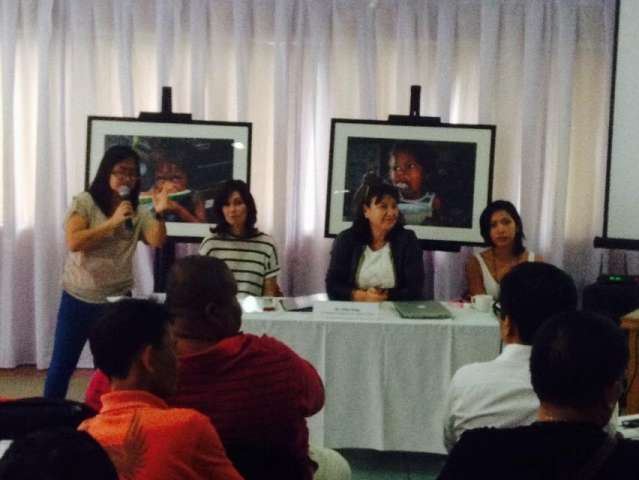Quezon City— The Save Agrarian Reform Alliance (SARA) welcomes the report of the United Nations Special Rapporteur to the Right to Food, Hilal Elver, who visited the Philippines February 20 – 27. Elver talked with peasant groups and agrarian reform and rural development advocates during her trip. Her initial findings and observations underscore what farmers have long been confronting: declining incomes and increasing poverty that make the rural populace, especially those who worked in the agricultural sector, one of the most prone to hunger.
In 2013, the rural income of those employed in agriculture was way below the required food threshold or the required minimum income/expenditure to meet the basic food needs and nutritional requirements for socio-economic and physical activities for a family of five. The rural income was pegged at PhP 5,063.70, a meager 2-peso increase from 2012, while food threshold was PhP 5,590.00. With these figures, SARA is not surprised why hunger continues to hound the countryside.
SARA is urging the Philippine government to pay attention to and heed the findings in the UN Rapporteur’s Report, mainly that food security is linked to land rights and to increasing the productive capacities of the farmers by giving them control of the lands they till and strengthening a rural economy driven by these small farm holders. Elver thus reports: “Comprehensive Agrarian Reform Extension with Reforms (CARPER) seeks the redistribution of land exceeding five hectares to landless farmers and farm workers who cultivate them. The legislative objective is laudable however implementation of the law is hindered by various roadblocks. It has been pending for 25 years with huge tracts of land remaining in the possession of few, while those farmers who have tilled and worked the land are allegedly being harassed and criminalised. The notice of coverage which under law puts the land up for re-distribution is often ignored by landowners. These farmers and farm workers are losing their means and source of subsistence. This is a key element to ensuring food security and preventing social unrest in the Philippines…”
Another critical finding in the report is the affirmation of what farmers and agrarian reform advocate have called attention to in their campaigns on the major causes of low incomes, poverty, and hunger in the countryside: “lack of access to productive resources such as land, seeds, water and capital and the vulnerability of the sector to climate change.”
Elver has cited lack of support in terms of “transport infrastructure, access to irrigation facilities, limited storage facilities” and assistance in “handling and marketing (the small farmers’) produce” as important factors that increase the vulnerability of small landholders. These forms of support, however, are in the key provisions of the CARP/ER law as part of the overall agrarian reform program. CARP/ER does not stop with the awarding and titling of lands to farmer beneficiaries in recognition of their historical economic bondage that has rendered them without capital and productive resources, thus needing government support in the initial years after receiving their lands. But without these support it has now become a trend that the farmer beneficiaries are losing their hard won lands again.
Meanwhile Elver has also pointed to the “existence of monopolies and large traders” which “presents an additional challenge…”
SARA echoes Elver’s recommendation that the Philippine government has to address “severe implementation gaps in almost all policies related to the right to food” and the “lack of coordination among relevant agencies to ensure implementation,” reminding that the Philippines is a State party to the International Covenant on Economic, Social and Cultural Rights.”
For SARA, one of the major areas where there is “severe implementation gap” is in the completion and effective implementation of CARP/ER; the deadline for the land acquisition and distribution phase had come and pass in June 2014, but government still has to distribute 726,421 hectares of lands from 77,066 landholdings as well as fulfil its obligations to provide key support to the farmers. SARA continues to campaign for the completion and effective implementation of agrarian reform on the ground, the extension of the issuance of notices of coverage (NOCs), and the passage of HB 4296 (Agrarian Reform completion law) and HB 4375, which will create an independent Agrarian Reform Commission.
|
Contact Person: Mary Ann Manahan, SARA, +639063983206 |










